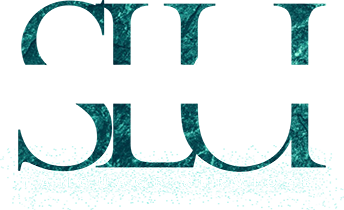A person with Language Interpreting Services whose purpose it is to translate communications between speakers of different languages, cultures, or modes of communication is known as an interpreter. To ensure equitable access to information and interactions for hearing, deaf, and hard-of-hearing persons, an interpreter is provided.
ASL, or American Sign Language, is often used by many (ASL). Other sign languages, such as Signed English, a combination of ASL signs conveyed in English grammatical order, may also be favored. Some people can choose speaking in their own voice or reading lips.
What sign language do I require interpretation into?
There are as many diverse language interpretation services as there are spoken languages. There are national and occasionally regional sign languages unique to each nation. Knowing which sign language your participants will use is crucial. We advise you to ask attendees if they need a sign language translator and, if yes, into which sign language, on the registration form for your event.
Additionally, there is an International sign language interpreter service a synthesis of many sign languages. International Sign is widely employed during gatherings of signers from many nations. Despite the fact that international contexts frequently use International Signs, not everyone is proficient in them.
To put it another way, you shouldn’t assume that International Sign will provide every signer enough access to your event. Similar to this, it’s critical to establish the spoken languages necessary for your event so that the appropriate interpreter(s) can be located.
When should I ask for assistance with sign language interpretation?
Some organizations offer free sign language interpreter services. We advise you to make a request for sign language interpreting services as soon as your event is planned. This gives you the opportunity to inform prospective attendees that your event is accessible to attendees who use sign language.
Multi-language interpreter services is an available round of the clock. In order to make your event accessible to both local and foreign signers, we normally advise providing interpreting services in both International Sign and the native sign language of the nation where your event is being held. Planning ahead can assist you get their services because there are a finite number of conference sign language interpreters available, particularly those who offer International Sign.
Can a signer also work as an interpreter?
No, the belief that everyone who has studied American over-the-phone language interpretation services or is familiar with the manual alphabet qualifies to be an interpreter may be the largest misperception among the general public. A person who can have a conversation with someone who is deaf or hard of hearing is known as a signer. In addition to being bilingual, an interpreter also possesses the particular knowledge and training required to mediate meanings between different languages and cultural contexts.
You may search sign language interpreting agencies near me. Years of instruction and practice are necessary to achieve these talents. An interpreter is a professional who has successfully completed either a state or national level of certification, ensuring the caliber of interpreting services. As a result, the Registry of Interpreters for the Deaf has created a stringent Code of Professional Conduct that applies to him or her.
Do various interpreters for sign language exist?
Yes, there are many different ways for people who are hard of hearing or deaf to communicate. Therefore, each corresponds to certain modalities of interpretation. As follows:
American Sign Language (ASL) interpreting: ASL is a unique language with its own grammar, syntax, and cultural intricacies. Spanish and ASL are very distinct from one other. An ASL interpreter will translate into spoken English what is signed in ASL and will sign in ASL what is stated in English.
English transliteration in Signed: Transliteration is the process by which interpreters offer a visual, manually-coded version of English that adheres to English grammar. Sign language interpreting agencies in Tennessee also offer the services. The interpreter will voice into spoken English what is signed in Signed English as well as what is signed in a visual form of English.
Interpreting Verbally: Without using their voice, interpreters will simulate spoken English by moving their mouths. They occasionally could mouth a word that is easier to read from the lips. The person who is deaf or hard of hearing may also utilize their voice to clarify any spoken messages.
What part does the interpreter play?
Translating and language interpreter service in san francisco offers an amazing service. A Code of Professional Conduct that was designed to safeguard the rights of all hearing, deaf, and hard-of-hearing persons who use interpreting services applies to sign language interpreters as well. This Code establishes guidelines for interpreters that protect confidentiality, discretion, and objectivity when communicating the messages of all involved customers.
Professional language interpretation services being a neutral communication bridge between the hearing, deaf, and hard of hearing individuals engaged and an active participants in an interpreted exchange is practically impossible to do simultaneously. Because of this, it is not the interpreter’s responsibility to provide advice, edit, support, instruct, or engage in the interpreting scenario. The right to manage the communication contacts with the consumers hearing, deaf, or hard of hearing must be left to the interpreter, who must authentically communicate the spirit and substance of any speaker or signer.





Pingback: What Is Interpretation Services Over The Phone?
Pingback: The Role of a Sign Language Interpreter? - Smart Line USA